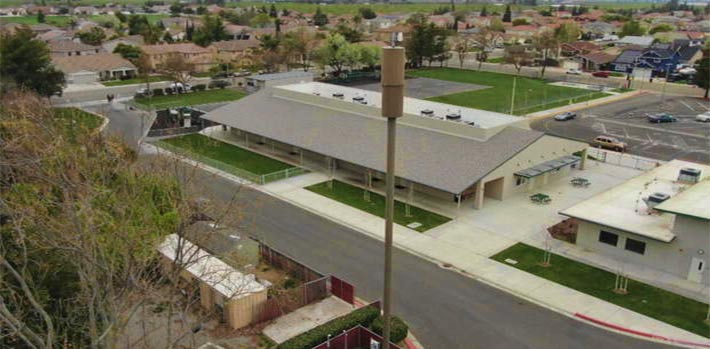
In its extensive report on March 20, 2019, Wireless Estimator identified that a report being used by parents protesting this Sprint site was flawed and not reliable
UPDATE – April 5, 2019 – Lawyers at the Cochran Law Firm said yesterday they’re investigating a link between cancer-causing chemicals used at the former Nestle decaffeination plant near the Ripon school site, and the high rate of cancer in the area, according to CBS 13.
April 4, 2019 — Although a Sprint cell site at the Weston Elementary School in Ripon, Calif. has had its RF levels tested three times and the school district concluded the tower met “government and industry standards in all respects” and presented “no threat to student safety,” the carrier said it has turned it off and is looking for an alternate location.
Ripon has become ground zero for RF cancer concerns after four children were diagnosed with cancer.
Some concerned parents hired an independent investigator to test the area at the school and he said that the levels were 100 times higher than what the school district was representing.
However, on March 20, 2019, Wireless Estimator, based upon data provided by the California testing representative and a careful review by RF professionals at LBA Group, identified in its extensive report that the results were flawed and not reliable.
In fact, LBA founder Lawrence Behr said that Eric Windheim, the parents’ ‘electromagnetic radiation specialist” unknowingly confirmed the safe level provided by the school district.
Nonetheless, Windheim’s faulty data was picked up by Newsweek and other media and it fueled parents in Germantown, Tenn. who are trying to block the erection of a cell tower on the city’s elementary school grounds.
The story resurfaced nationally this morning when CBS This Morning ran a story about the Ripon tower.
CBS appears to have done some research on Windheim’s report, stating, “The parents hired their own investigator who found much higher RF levels than the district did, but still within government safety standards.”
The school district informed CBS that it has been in touch with the California Department of Health and has tested the school’s soil and water. It is waiting for the results of those tests.
An executive of a major tower consolidator that requested to remain unnamed said, “I can understand Sprint wanting to appease the parents in this highly charged situation where children actually have cancer, but it also sends a message that will be used by other communities looking to keep cell sites off of or near their campuses.”

















